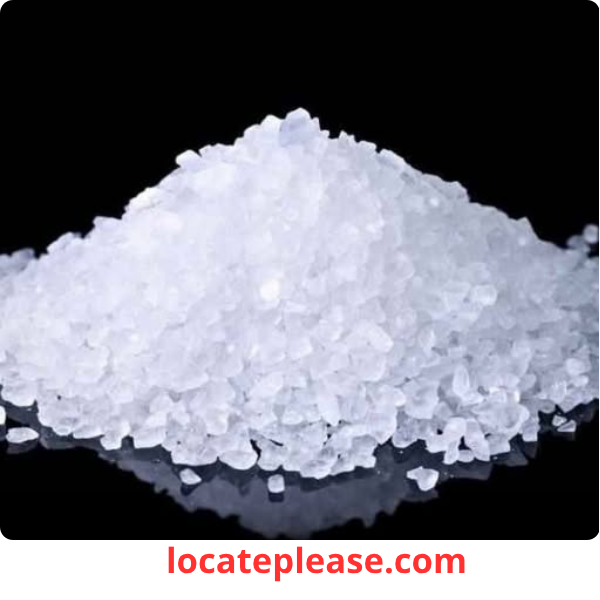In a world overflowing with trendy superfoods — from turmeric lattes to chia puddings — one essential nutrient quietly stands above the rest, not as a flashy newcomer, but as a foundational powerhouse for human health: magnesium.
Often overlooked, magnesium is involved in over 300 biochemical reactions in your body. It’s essential for energy production, muscle function, nerve signaling, heart rhythm, and even your mood.
And yet, nearly half of all adults in the U.S. don’t get enough magnesium from their diets.
The result? A silent epidemic of deficiency linked to chronic fatigue, anxiety, heart disease, type 2 diabetes, and more.
But the good news?
You can reverse the damage — and boost your health dramatically — by simply getting more magnesium.
Let’s dive into why this mineral is a true superfood, what happens when you’re low, and how to get more of it — naturally.
Why Magnesium Is a Superfood (Yes, a Mineral Can Be a Superfood)
Magnesium isn’t a fruit or a green leafy vegetable — it’s a mineral. But its impact on health is so vast and vital that it earns the title of “the most important mineral you’re not getting enough of.”
Here’s what magnesium does in your body:
✅ Energy Production – Converts food into ATP (your body’s energy currency)
✅ Muscle & Nerve Function – Helps muscles relax and nerves fire properly
✅ Heart Health – Regulates heartbeat and blood pressure
✅ Bone Strength – Works with calcium and vitamin D to build strong bones
✅ Blood Sugar Control – Improves insulin sensitivity, reducing diabetes risk
✅ Mood & Sleep Support – Calms the nervous system, reduces anxiety, and promotes restful sleep
✅ DNA Repair & Antioxidant Production – Protects cells from damage and aging
Without enough magnesium, your body simply can’t function at its best.
7 Major Health Issues Linked to Magnesium Deficiency
- Chronic Fatigue & Low Energy
Magnesium is crucial for mitochondrial function. Low levels = sluggish cells = constant tiredness. - Muscle Cramps, Twitches, and Spasms
Ever wake up with a charley horse? Magnesium helps muscles relax — deficiency leads to tension and cramping. - Anxiety, Depression, and Brain Fog
Low magnesium disrupts GABA, a calming brain chemical. This can lead to anxiety, insomnia, and poor focus. - High Blood Pressure & Heart Disease
Magnesium relaxes blood vessels. Without it, blood pressure rises, increasing the risk of heart attack and stroke. - Type 2 Diabetes
Over 75% of people with type 2 diabetes are magnesium-deficient. Low levels impair insulin function and glucose metabolism. - Osteoporosis
While calcium gets the spotlight, magnesium is essential for bone density — it helps absorb and regulate calcium. - Migraines and Headaches
Studies show magnesium supplements can reduce the frequency and severity of migraines.
Why Are So Many People Deficient?
Despite being in soil and plants, modern life is working against magnesium intake.
Common causes of deficiency:
- Poor diet – Processed foods are stripped of magnesium
- Soil depletion – Crops grown in mineral-poor soil have less magnesium
- Stress – Chronic stress burns through magnesium reserves
- Alcohol, caffeine, and sugar – These deplete magnesium from your body
- Certain medications – Diuretics, proton-pump inhibitors, and antibiotics can reduce absorption
Even if you eat healthy, you might still be low.
Top Food Sources of Magnesium
The best way to get magnesium is from whole, natural foods.
🌿 Best Magnesium-Rich Foods
|
Pumpkin seeds (1 oz)
|
156mg (37% DV)
|
|
Spinach, cooked (1 cup)
|
157mg (37% DV)
|
|
Almonds (1 oz)
|
80mg (19% DV)
|
|
Black beans (1 cup)
|
120mg (28% DV)
|
|
Avocado (1 medium)
|
58mg (14% DV)
|
|
Dark chocolate (70–85%, 1 oz)
|
65mg (15% DV)
|
|
Banana (1 large)
|
37mg (9% DV)
|
|
Salmon (3 oz)
|
26mg (6% DV)
|
✅ Tip: Eat a handful of nuts, leafy greens, and seeds daily to stay in the clear.
Magnesium Supplements: When You Might Need Them
If you’re experiencing symptoms of deficiency, a supplement can help — but not all forms are equal.
Best Types of Magnesium:
- Magnesium glycinate – Best for sleep and anxiety (gentle, highly absorbable)
- Magnesium citrate – Great for constipation and digestion
- Magnesium threonate – Crosses the blood-brain barrier — ideal for memory and brain health
- Magnesium chloride or oil – Can be applied topically for muscle pain and relaxation
❌ Avoid magnesium oxide — it’s poorly absorbed and mostly acts as a laxative.
✅ Daily recommendation: 310–420mg for adults (varies by age, sex, and health status)
Always consult your doctor before starting supplements — especially if you have kidney issues.
How to Know If You’re Low on Magnesium
You might be deficient if you regularly experience:
- Muscle cramps or twitching
- Frequent headaches
- Fatigue, even after sleep
- Anxiety or irritability
- Irregular heartbeat
- Insomnia
- Constipation
A simple blood test (though not always accurate, as most magnesium is stored in bones and cells) or RBC magnesium test can help confirm.
Final Thoughts: Magnesium — The Silent Healer
Magnesium isn’t flashy.
It doesn’t come in a colorful smoothie bowl.
It won’t trend on Instagram.
But it’s one of the most essential nutrients for human health — quietly supporting your heart, brain, muscles, and mind every single second.
And the best part?
You can boost your levels with simple changes:
- Eat more leafy greens, nuts, seeds, and whole grains
- Reduce stress, sugar, and alcohol
- Consider a high-quality supplement if needed
So if you’re feeling tired, tense, or just “off” — don’t reach for coffee or another energy bar.
Reach for magnesium.
Because sometimes, the most powerful medicine isn’t new.
It’s ancient, essential, and already inside you — just waiting to be replenished.
Recharge your body. Restore your balance. Rediscover the power of magnesium.






